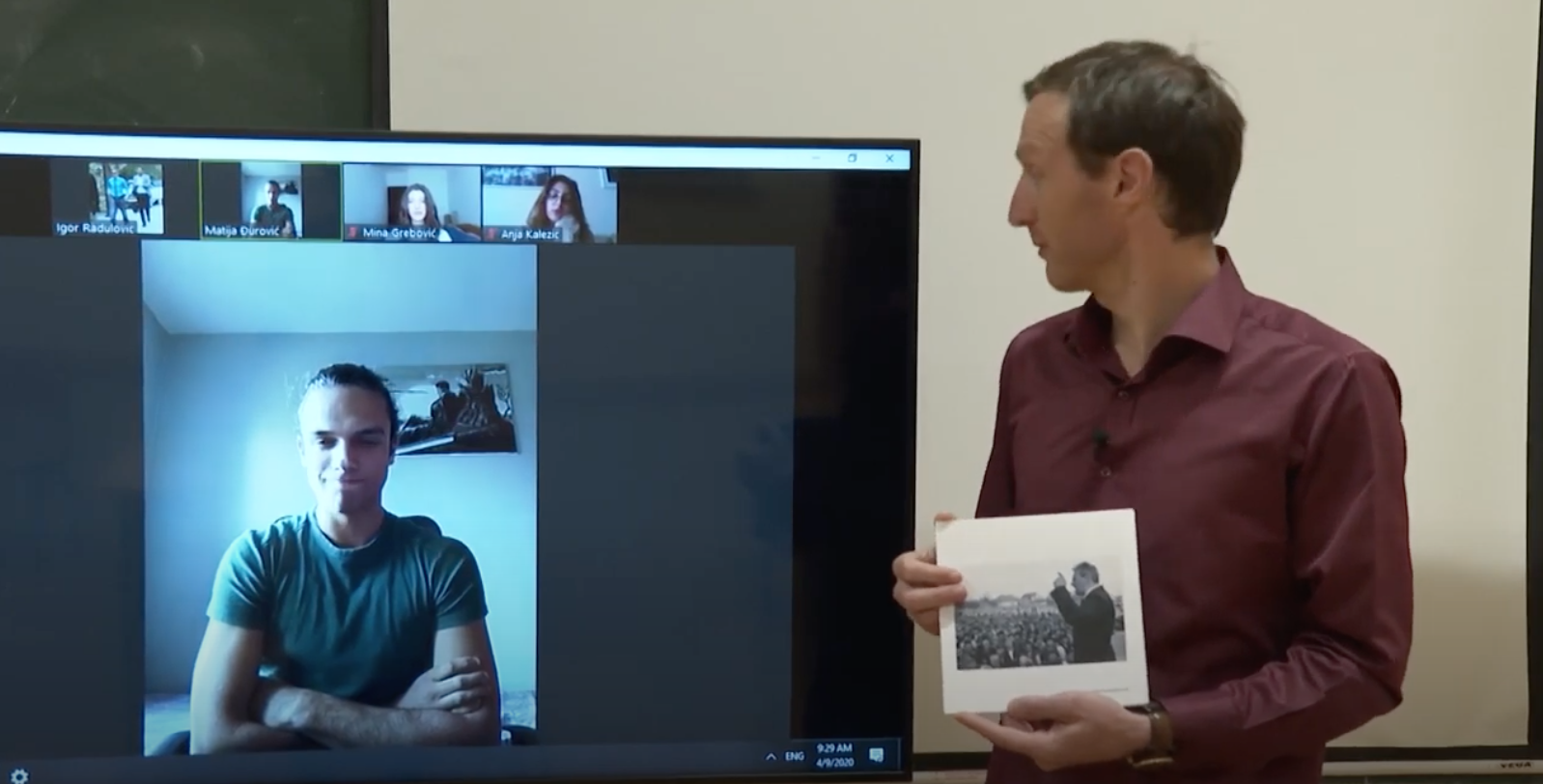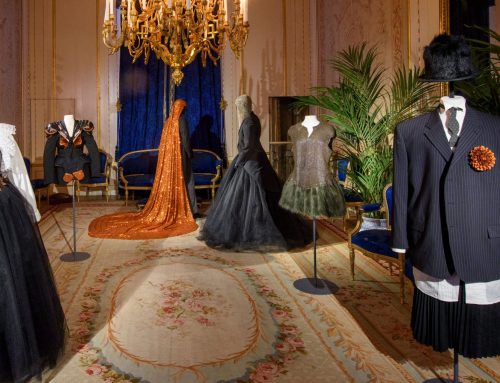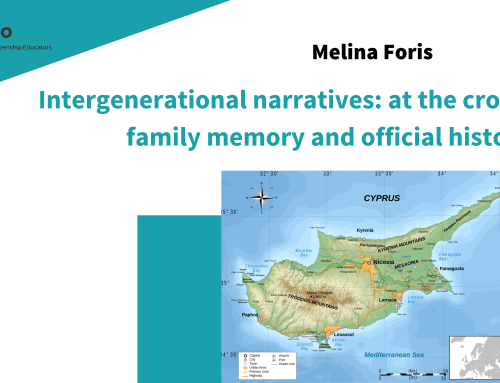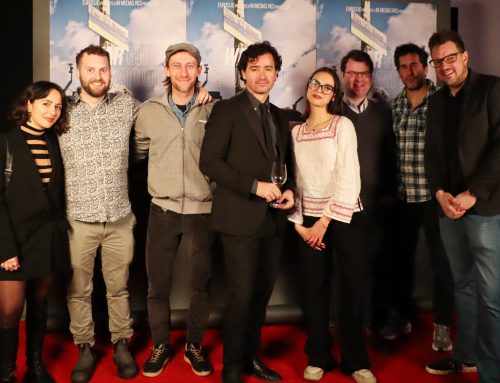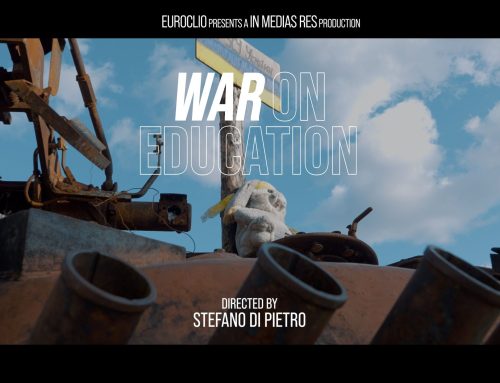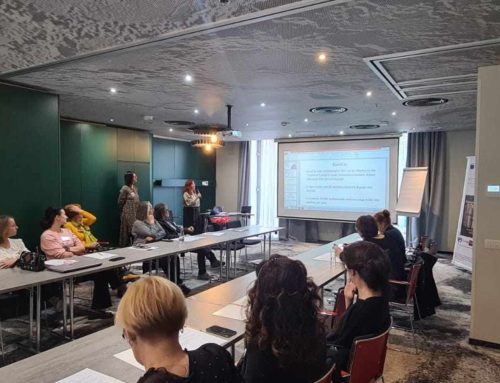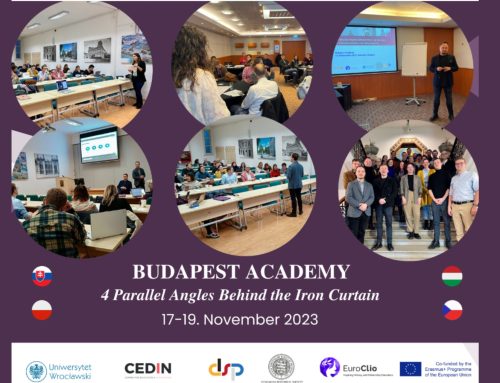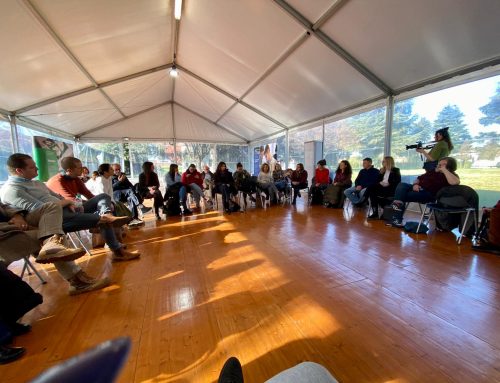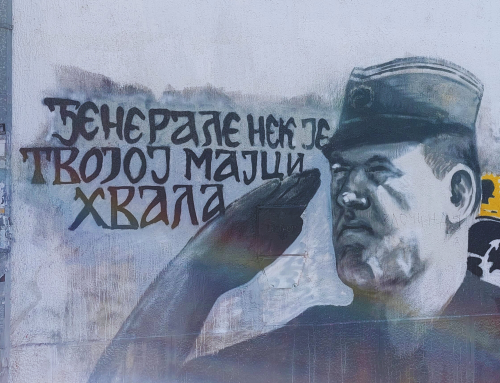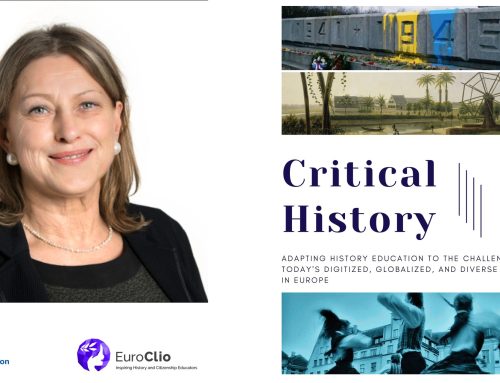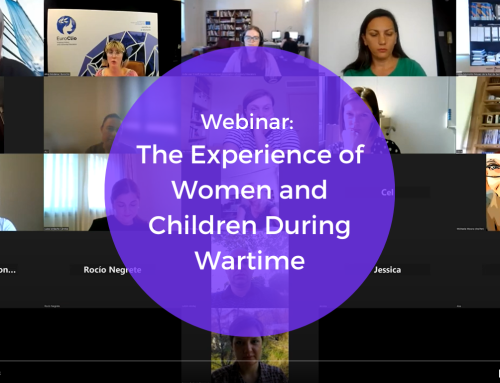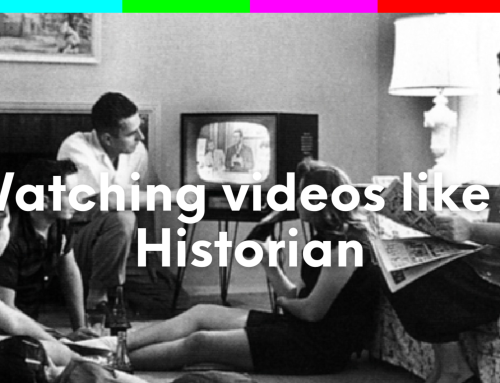“These are the times that try men's souls”
“In the past year, we organised workshops with several groups, talking about the wars in Yugoslavia in the 1990’s. We learned about most of the background information for the showcased images by first participating in the workshop ourselves, and later, we were given insight into some further details on their context. Overall, the experience was as challenging and educational as it was entertaining.” I will start with the words of my student Matija, as I think that they are the best indicator of how successful we’ve been while teaching history that is not yet history.
It has been exactly two months since I last entered a classroom that was full of students. Since the school closed, we were obliged to adapt ourselves to this new situation. We reacted without any delay.
In the same week, I received a call from the principal of the high school in which I am working who asked me to participate in the project “Learn from home” (“Uči doma“). My answer was “Inform me when we are starting.” A couple of days later, I was once more in my classroom, this time standing in front of the camera. My task was to prepare lessons for high school students, I chose to prepare lessons for the third and the fourth grade.
It was a bit difficult to analyse certain historical topics, without anyone there to ask questions or for explanations. To make a comment about something…anything. I had to change the approach and it was obvious for me what was needed. I needed to include my students somehow!
So, phase two started – ‘Let’s try to do some workshops online.’ It wasn’t easy, I can tell you that. But, it was awesome! We connected ourselves through online platforms and started preparing workshops. One day I posted a question in one of our groups which said: “Are we doing the 90s?”
Well, this is the answer – Istorija za IV razred opšte gimnazije – Nestanak Jugoslavije (History for the 4th grade of general high school – The disappearance of Yugoslavia)
We decided to use the materials that were created in cooperation with EuroClio. So, all those projects I was involved in, including “Learning history that is not yet history” and EuroClio’s cooperation with the International Residual Mechanism for Criminal Tribunals in researching their archives, finally gained wider audience in my country – the most important audience, I would add! We have shown every fourth grader in Montenegro that we can discuss this sensitive period that many of them believed is not yet history. For the first time in history, we have discussed and presented this topic to hundred-thousands people, and this was broadcasted on the national Montenegro television in prime time. The reactions from the student, colleagues and parents were awesome. I would say that we have fulfilled our main task.
The material we have used the most while preparing this lesson was a War(s) in photos workshop. Pupils used visual sources to explain their perspective of the topic, they tried to elaborate how the common people were affected by the war, what was the role of soldiers and what was the role of politicians. I have to say that this wasn’t the first attempt to discuss these subjects with students in a classroom workshop in the past few months, but it was by far the best and most successful one. I was extremely happy and proud that we were able to promote this topic by using a multi perspective approach, not excluding any of the points of views and sides of the people that participated in the war.
Another student that contributed to this workshop, Mina, stated “I have had an opportunity to be a part of this workshop more than once and every time it was a new experience. As the topic is quite a taboo, I found presenting the facts about the war fairly challenging. But, when you choose the fear of starting a controversial lecture over education, you compromise people’s future abilities to understand and forgive each other. In my opinion, this workshop completely breaks the stereotype of this topic as something upsetting that creates divisions, it is a creative way to overcome the limitations and start to openly speak about a topic that is shaping the generations to come. With putting the effort, you can teach in a way that can be only prosperous and never harmful or offensive.
As I wrote in a similar article a couple of weeks ago, “These are the times that try men’s souls.” But these are also the times when we need to show our responsibility. And I think that this was one of the ways we have done it. I will conclude with the words of my student Anja, which wrote about her experience while doing this topic “As important as it is to shine light on the topic of wars of the 90s as a professor it might be even more important to be thoroughly involved in a serious subject such as this one as a student. I personally felt that it was my responsibility to establish the communication with the other peers because it was a crucial part to them understanding and sharing personal opinions and beliefs on this topic, which in the end I think I did well with the help of my friends.”
Written by Igor Radulović, history teacher from Podgorica, Montenegro. As a member of HIPMONT (History teachers association of Montenegro), Igor participated in the project “Learning history that is not history”, which won the Global Pluralism Award for 2019. He is also involved as a trainer in EuroClio’s collaboration with the UN ‘s International Residual Mechanism for Criminal Tribunals.

